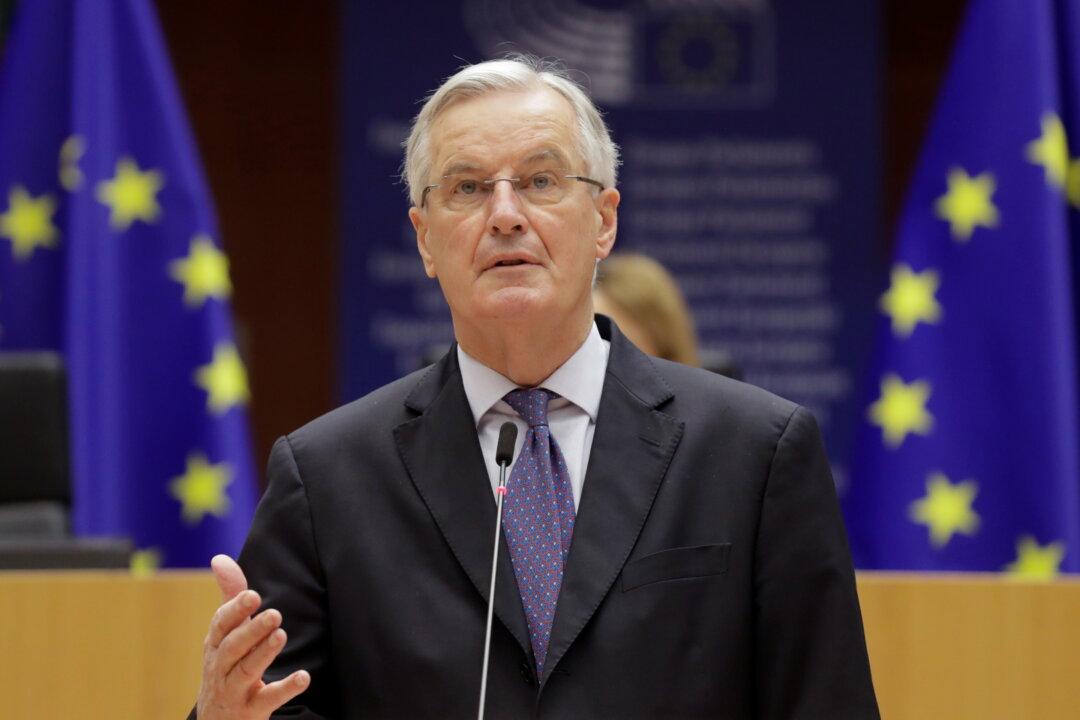British and EU officials are still working hard at this “crucial moment” in Brexit trade talks, EU chief negotiator Michel Barnier said on Dec. 20, with only days left before the Brexit transition period is set to end on Dec. 31.
Barnier and his UK counterpart David Frost have been struggling to break the deadlock, even with intervention by British Prime Minister Boris Johnson and European Commission President Ursula von der Leyen.





